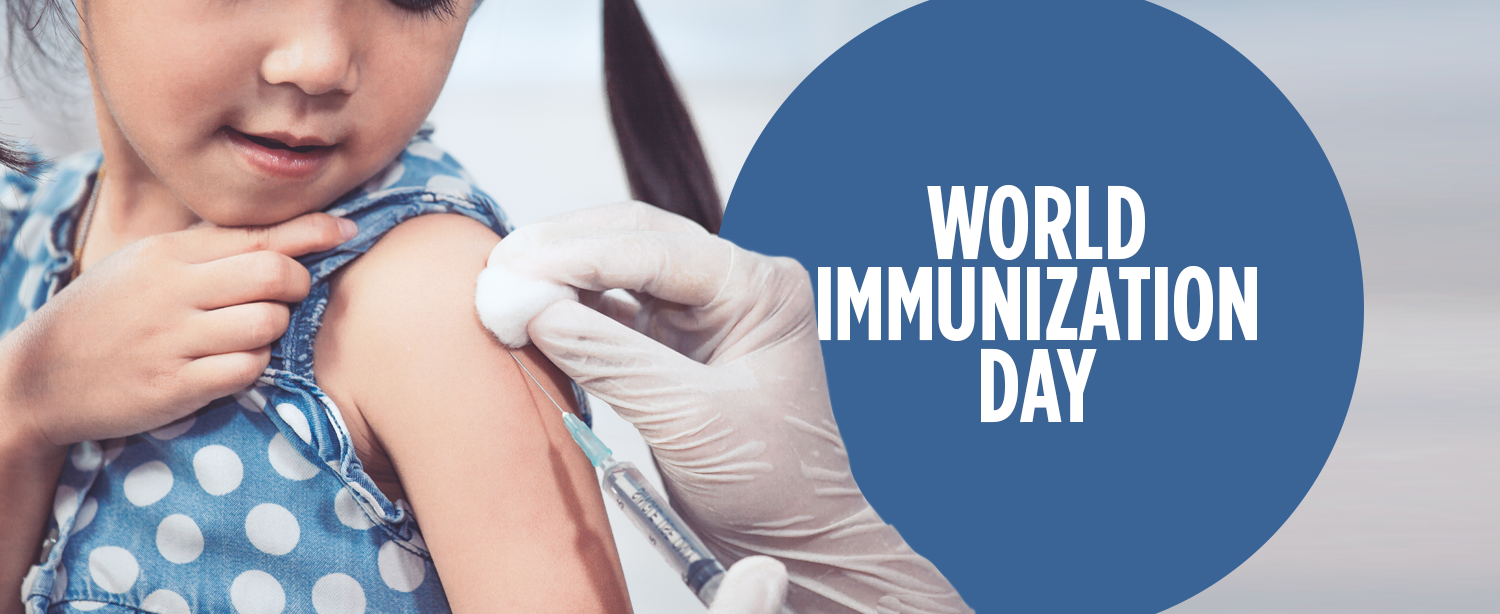Immunizations are a part of preventive medical care and are helpful at all stages of life – right from infancy to childhood to adult life and old age living. Let us spread the awareness about important vaccinations to protect everyone against deadly diseases.
Childhood Vaccination
Childhood vaccines are recommended by your paediatrician. It is essential to follow the immunization chart prescribed by your doctor. Vaccinations not only protect your child from deadly diseases, such as polio, tetanus, and diphtheria, but they also keep other children safe by eliminating or greatly decreasing dangerous diseases that used to spread from child to child.
A vaccine is a dead, or weakened version, or part of the germ that causes the disease in question. When children are exposed to a disease in vaccine form, is able to build up antibodies that protect them from contracting the disease if and when they are exposed to the actual disease.
Most of your child’s vaccinations are completed between birth and 6 years. Many vaccines are given more than once, at different ages, and in combinations. Parents must take special care to maintain a track of their child’s immunizations.
Why you must Vaccinate Your Child
- Immunizations can save your child’s life. Because of advanced medical science, your child can be protected against more diseases than ever before.
- Vaccination is very safe and effective. Vaccines are only given to children after a long and careful review by scientists, doctors, and healthcare professionals. Vaccines will involve some discomfort and may cause pain, redness, or tenderness at the site of injection but this is minimal compared to the pain, discomfort, and trauma of the diseases these vaccines prevent.
- Immunizations can save your family time and money. Some vaccine-preventable diseases can result in prolonged disabilities and can take a financial toll because of lost time at work, medical bills or long-term disability care.
- Immunization protects future generations. Vaccines have reduced and, in some cases, eliminated many diseases that killed or severely disabled people just a few generations ago.
Myths and facts
Below are some common myths and facts about vaccines.
1. Myth: I’m breastfeeding, so my baby is protected from infections.
Fact: Breastfeeding is not a substitute for vaccination. Breastfeeding provides some protection against certain infections, especially viral respiratory infections, ear infections and diarrhoea. But this protection is incomplete, temporary, and can be overcome if your baby is exposed to large amounts of a specific germ.
2. Myth: My child doesn’t need vaccines because these diseases don’t exist anymore.
Fact: These diseases still exist, even if they are rare. Thanks to vaccine programs, all vaccine-preventable diseases have declined. But when immunization rates drop, these diseases can come back.
3. Myth: It’s better to get one vaccine at a time.
Fact: Thanks to combination vaccines, your child can get protection from many different diseases with one injection (shot). Studies show that combination vaccines are safe and effective.
4. Myth: There will be fewer side effects if I delay my baby’s vaccinations.
Fact: Vaccines begin at 2 months of age to protect babies as early in life as possible against diseases that can make them very sick. Babies respond well to vaccines at a very young age.
5. Myth: Vaccines are not safe.
Fact: Vaccines are safe and effective. They are formulated after a lot of research and testing and are completely safe for your child. Serious side effects to vaccines are very rare.
6. Myth: The MMR vaccine causes autism.
Fact: No, the MMR vaccine does not cause autism. There is no scientific evidence to support this claim. Because signs of autism may appear around the same age that children receive the MMR vaccine, some people believe the vaccine causes the condition.
Adult vaccines
Vaccines are not just for children, adults need them too for various health reasons.
Adults require vaccinations only under special conditions. Vaccines such as hepatitis A and B, pneumococcal and meningococcal meningitis, rabies, human papillomavirus vaccine and tetanus are the most common vaccinations given in India to adults.
The pneumococcal vaccine is give to people over 65 years of age as they are very susceptible to pneumonia. Rubella vaccination is given to females who are of reproductive age group. The human papillomavirus vaccine is given to prevent cervical cancer in women.
Travel immunizations
It is important to take vaccines as precautions while travelling to certain countries. For example, yellow fever vaccination is needed by Indians travelling to African countries. We don’t have yellow fever in India yet – but as a tropical and country the disease can thrive here well. So if someone from India travels to Africa, contracts the disease and returns to India, they can spread the disease. Similarly, vaccinations against tuberculosis, typhoid and meningococcal meningitis are required if you travel to the US or European countries.
Do you have a new born at home? Do you have any questions about adult vaccinations? Are you travelling abroad? Please find below links to our various Departments for vaccination details:
https://www.kokilabenhospital.com/departments/centresofexcellence/centrefor_children.html
https://www.kokilabenhospital.com/departments/clinicsatkh/adultimmunizationclinic.html
https://www.kokilabenhospital.com/departments/clinicsatkh/travelclinic.html


